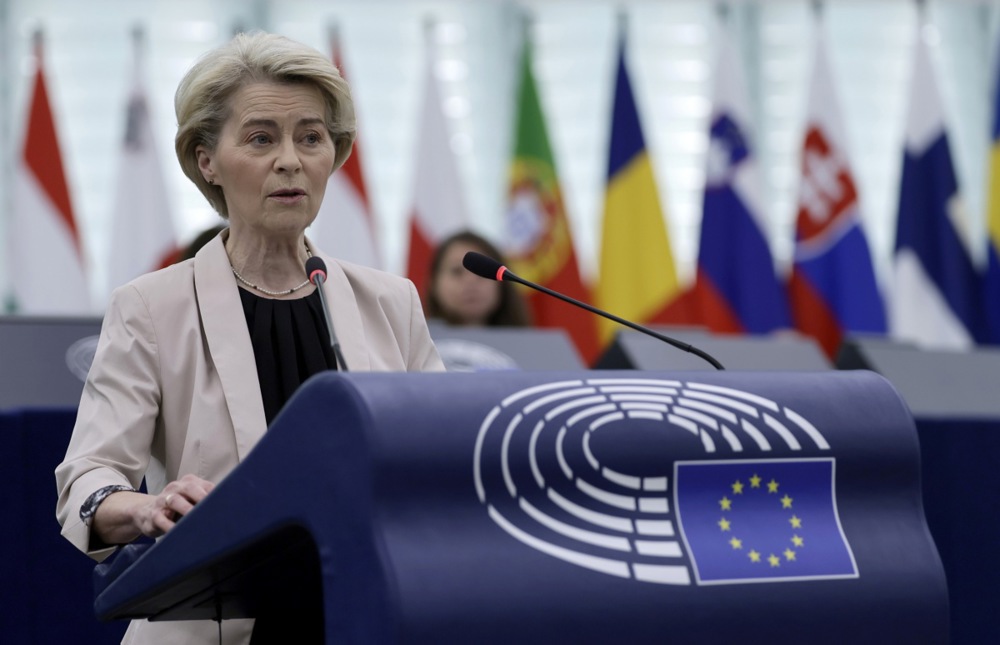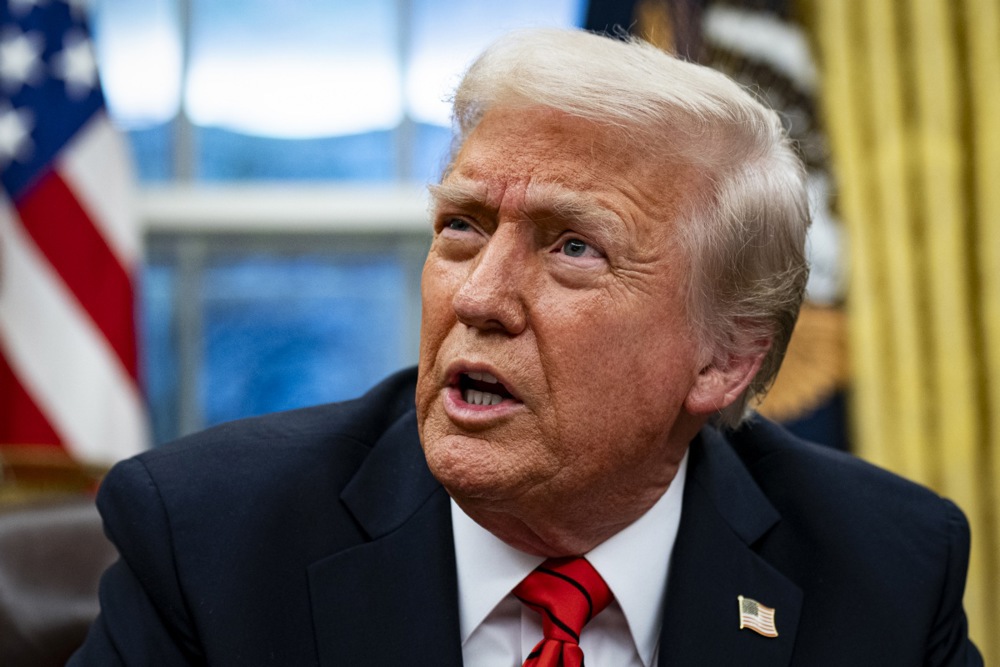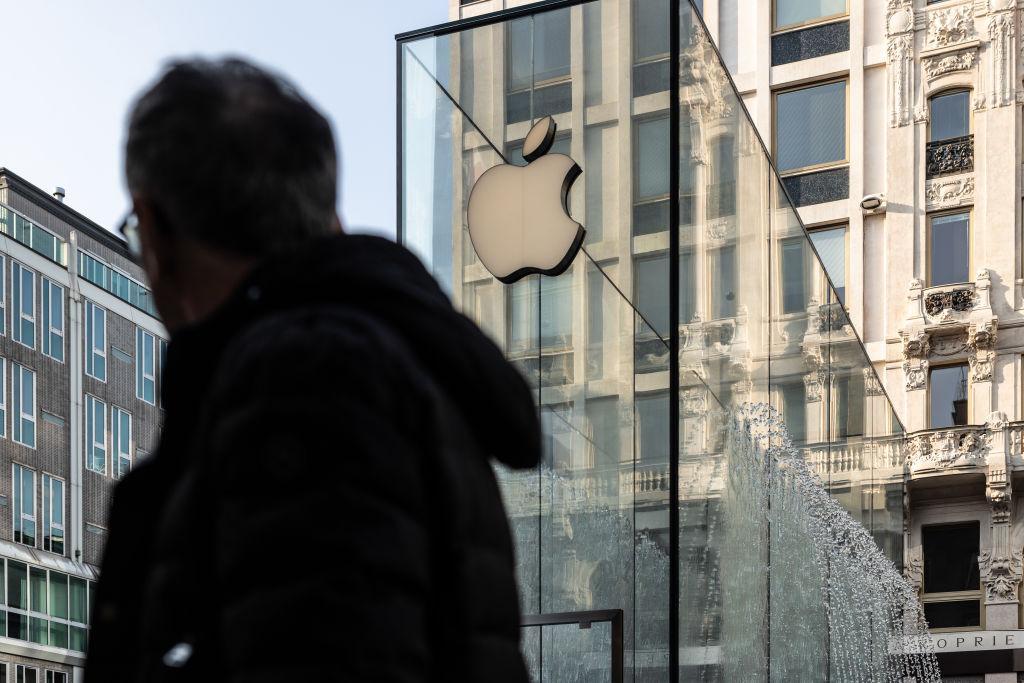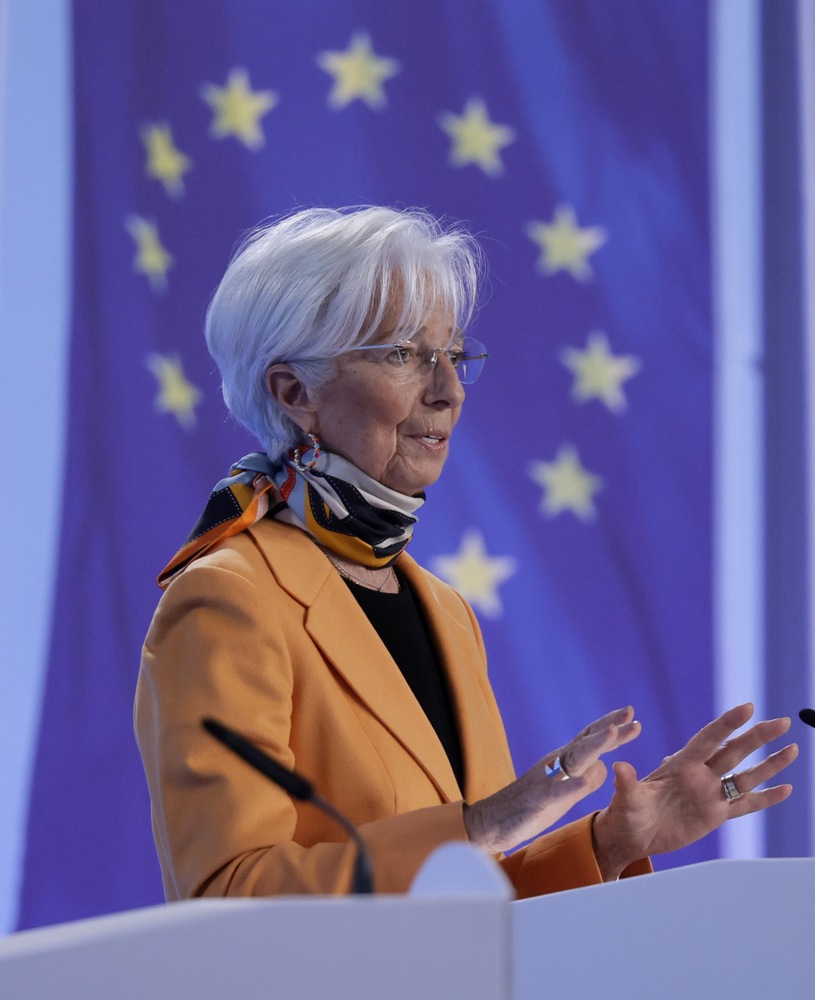As the clock ticks down to US President Donald Trump’s tariffs announcement, markets, policymakers and consumers stand at a crossroads, caught between rising prices and slowing economies.
Global markets were on edge as Trump prepared to unveil a wave of reciprocal tariffs at 9pm CET on April 2.
With headline inflation recently easing — dropping to 2.2 per cent in parts of Europe — policymakers and investors alike were weighing the potential consequences of the US move.
The key question for central banks, businesses, and consumers is: Would tariffs fuel inflation by raising import costs, or would they ultimately slow growth, reinforcing disinflationary trends?
European Central Bank (ECB) Vice President Luis de Guindos on March 28 highlighted this dual effect, saying: “A trade war would mostly impact economic growth.”
He emphasised that “the disinflation process is continuing, with our goal to be reached in the coming months”.
While tariffs may initially drive inflation higher by increasing costs for imported goods, weaker economic activity could ultimately suppress price pressures, offsetting these effects over time, experts said.
A report from ING Economics on April 1 supported this view, noting that as businesses faced declining demand due to rising prices, they may be forced to cut costs, further reinforcing disinflationary pressures.
De Guindos’ assessment aligned with this — he has repeatedly warned that, while inflation was easing, economic uncertainty could play a decisive role in shaping the ECB’s next moves.
European Commission President Ursula von der Leyen struck a different note: “Tariffs will just fuel inflation, the opposite of what we want to achieve,” she said.
Speaking at the latest plenary session of the European Parliament on April 1, which focused on EU preparation for the tariffs, she elaborated: “Tariffs are taxes. Americans will pay more for groceries and medication. They create a bureaucratic monster.”
Her remarks were primarily directed at the US, warning that tariffs imposed by Trump would drive up costs for US consumers. ING Economics concurred that even modest tariff hikes can disrupt supply chains, forcing companies to pass on higher costs to consumers — creating an inflationary surge.
This economic tug-of-war was already shaping market reactions. According to Reuters, investors were shifting toward safe-haven assets, with gold prices hitting record highs.
The euro had weakened slightly, while the yen had strengthened in anticipation of the tariff announcement.
ING Economics underscored that energy and service prices — key components of recent disinflation — remained vulnerable to external shocks such as trade restrictions.
The ECB now faced a precarious balancing act. If tariffs stoked inflation, policymakers may hesitate to cut interest rates as planned. But, if economic activity slowed, the case for monetary easing would only grow stronger.





